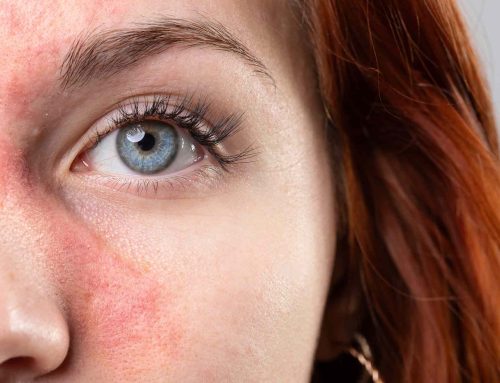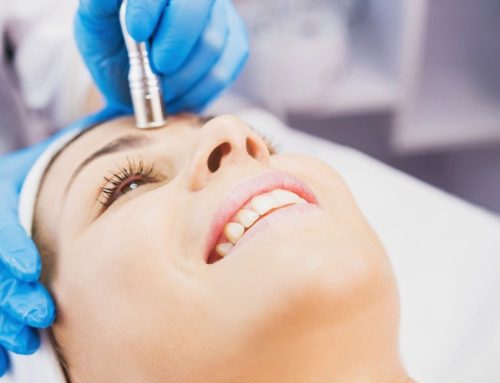The sun, with its intense rays, is a potent force that can wreak havoc on your skin if left unprotected. Prolonged exposure to harmful ultraviolet (UV) radiation can lead to a multitude of skin issues, including premature aging, unsightly age spots, and even the development of life-threatening skin cancer. However, take solace in the fact that it is never too late to start prioritizing the well-being of your skin. By adopting a proactive approach and implementing effective skincare practices, you can not only mitigate further sun damage but also turn back the hands of time on existing sun-induced harm.
Remember, your skin is a precious and resilient organ that deserves your utmost care and attention. By implementing the following tips in this article, you can embark on a journey towards healthier, more radiant skin.
Use Sunscreen Daily
Sunscreen helps protect your skin from the harmful rays of the sun. Using sunscreen is one of the best tips to help heal sun damage and prevent it. Even on cloudy or rainy days, the sun’s UV rays can still penetrate through the clouds and cause damage. That’s why it’s important to wear sunscreen every day, even if you don’t plan on being in the sun for long periods of time. Look for a broad-spectrum sunscreen that protects against both UVA and UVB rays, and has an SPF of 30 or higher.
Heal Sun Damage with Antioxidants
Antioxidants are great for repairing damaged skin caused by the sun’s rays. Antioxidants neutralize free radicals, which are unstable molecules that can cause damage to your skin cells. Look for skincare products that contain antioxidants such as vitamins C and E, green tea extract, and ferulic acid. Applying these products to your skin can help reduce and heal sun damage and improve the overall appearance of your skin.

Hydrate Your Skin To Heal Sun Damage
Sun damage can cause your skin to become dry and dehydrated. That’s why it’s important to hydrate your skin with moisturizers and drink plenty of water. Look for hydrating skincare products that contain ingredients like hyaluronic acid, glycerin, and ceramides. These ingredients will help to restore moisture to your skin and improve its overall health.
Exfoliate Regularly
Exfoliating your skin helps to remove dead skin cells and encourage cell turnover, which can help to improve the appearance of sun-damaged skin. Look for gentle exfoliants that won’t be too harsh on your skin, and use them 1-2 times a week. Exfoliating can also help to reduce the appearance of fine lines and wrinkles caused by sun damage.
Get Regular Check-Ups With A Skin Care Physician
One of the final tips to help heal sun damage is to see a skin care physician. To ensure optimal skin health and prevent future sun damage, it is highly recommended to schedule regular check-ups with a skin care physician. By doing so, you can benefit from their expertise in identifying early signs of skin damage or skin cancer, allowing for timely intervention and appropriate treatments. Moreover, your physician can offer personalized advice tailored to your specific skin type, guiding you on the most effective sun protection methods and providing invaluable skincare recommendations to maintain a healthy complexion. Prioritizing these proactive measures will contribute to long-term skin wellness and overall well-being.

Final Notes On Tips To Help Heal Sun Damage
Sun damage can be a difficult thing to avoid entirely, but taking care of your skin can help mitigate some of the damage that has already been done. Consistent use of sunscreen, antioxidant-rich skincare products, hydration, regular exfoliation, and regular check-ups with your dermatologist are all the best tips to help heal sun damage. Following these tips can keep your skin healthy and protected for years to come. So don’t put off your skincare routine any longer – start protecting your skin today!
Related Questions
Is sun damage less likely during the winter months?
Due to the lower angle of the sun and shorter daylight hours, the intensity of UV radiation may be reduced. However, it’s important to note that even on cloudy days or in colder climates, UV rays can still penetrate the skin and cause damage. Therefore, it is still necessary to protect your skin by wearing sunscreen and taking other precautions, regardless of the season.
Can you get rid of sunspots?
Sun spots, also known as age spots or liver spots, are darkened areas of the skin that can occur due to prolonged sun exposure or aging. While there are various methods available to lighten or reduce the appearance of sun spots, it’s important to note that complete elimination may not always be achievable. Some common treatments include topical creams, laser therapy, chemical peels, and microdermabrasion.






